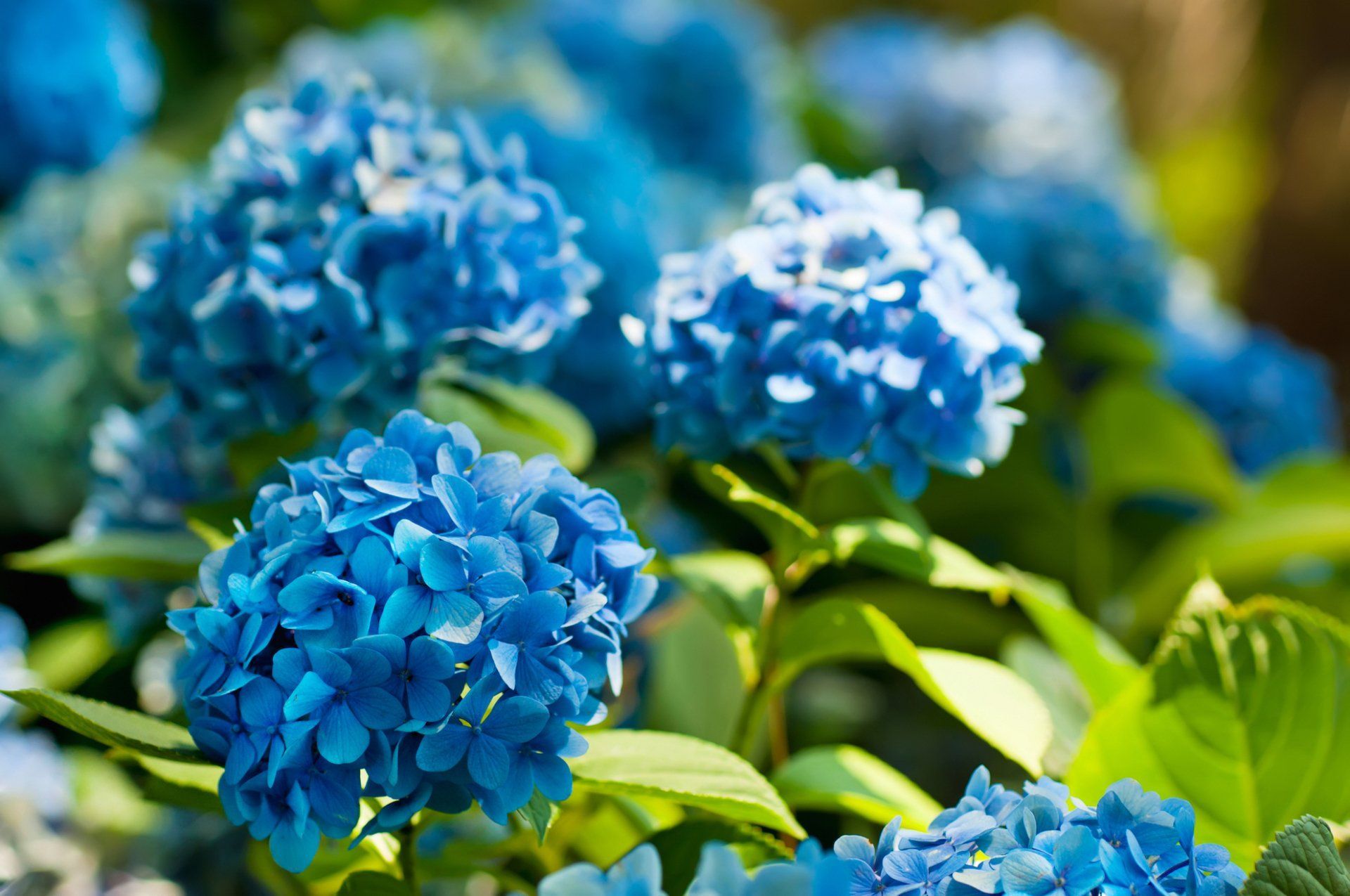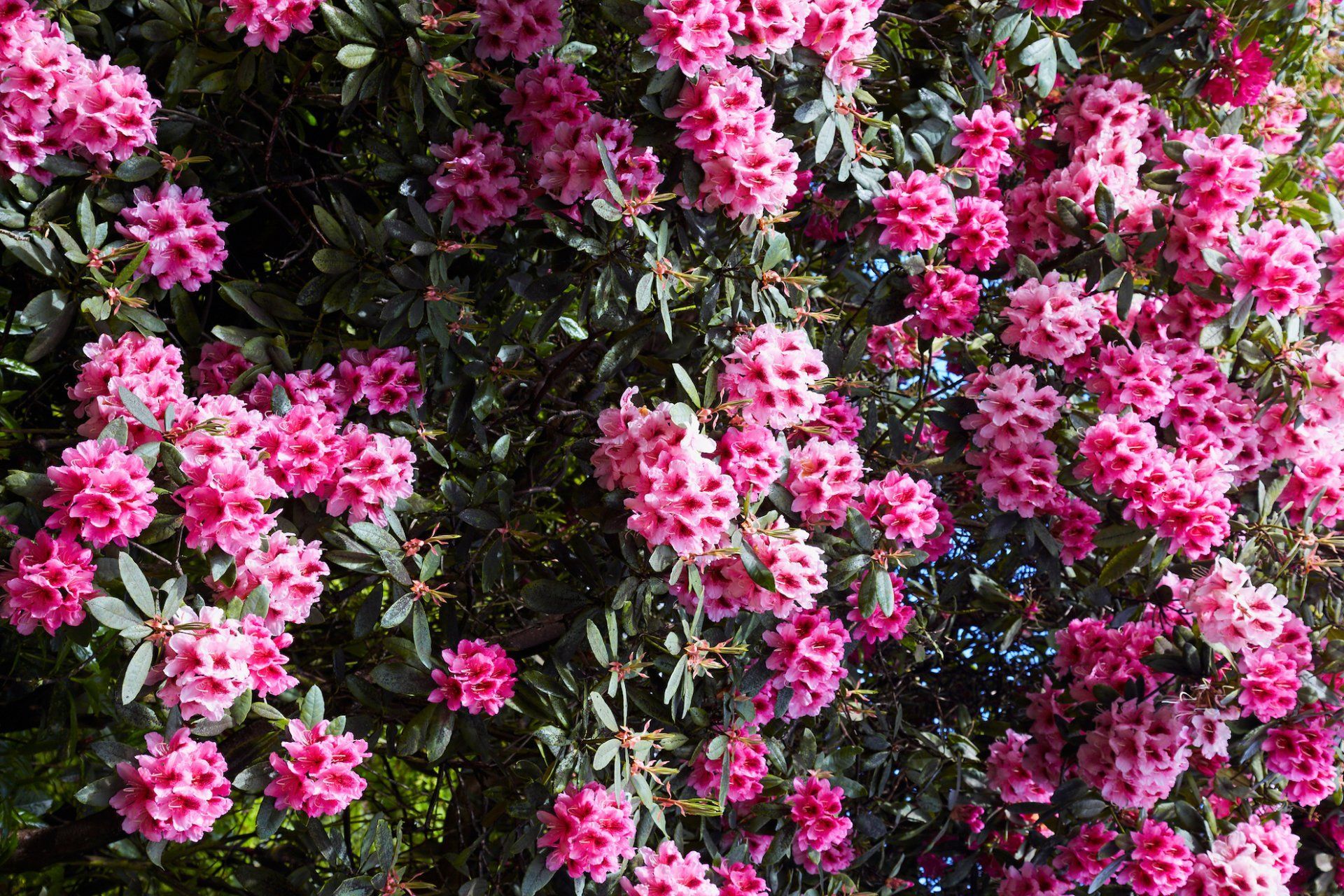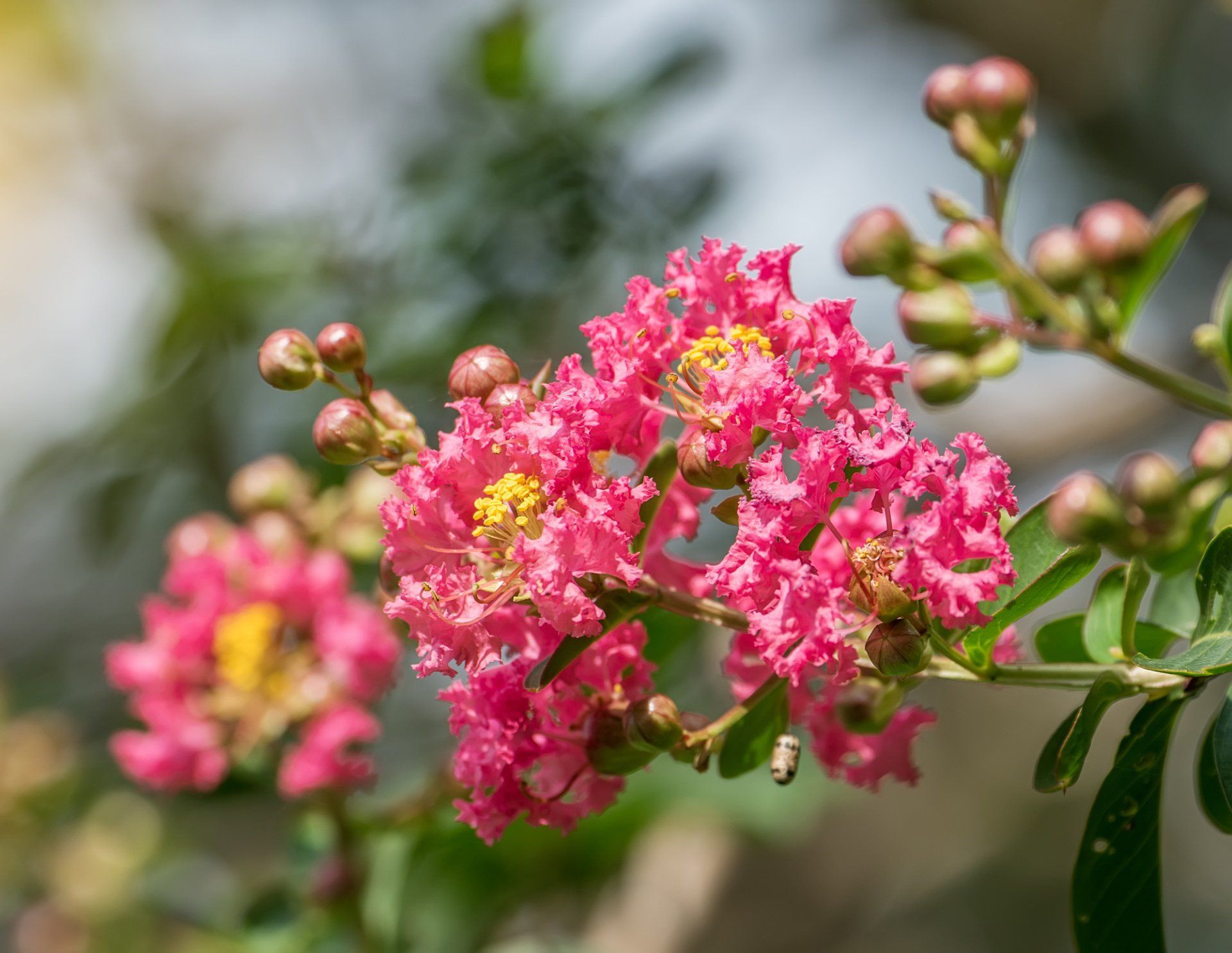Spring Time Lawn Care in St. Louis MO
It’s needless to say that every homeowner desires to own a lush and healthy lawn. It not only enhances the beauty quotient of the property but offers a great place for everyone in the family to enjoy. With Missouri belonging to the U.S. transition zone, people residing there often have to wait for spring – when weather fluctuations settle down – to start lawn care. You may not need to focus on this during the cold winter months but once the temperature starts warming up in spring, you’ve to make it a priority, as long as you live in Oakville,MO, Mehlville, MO, or any other part in the city of St. Louis.
If you don’t perform appropriate lawn care in spring, it may have significant repercussions later on. Proper spring lawn care will help your lawn experience healthy growth in the summer. While spring lawn maintenance may take only a couple of days but each step is an effective long-term investment. This is because they’ll ensure that the lawn looks great throughout the year.
At Kozeny’s Lawn Service, we frequently receive many queries from homeowners in Mehlville, MO, Oakville, MO, and adjoining areas on spring lawn care. Instead of answering the questions individually, we decided to create this detailed handbook on the topic to help them out.
Essential Spring Lawn Care Tips In St. Louis
Lawns in St. Louis appear with special requirements during spring and if you fail to address them, you’ll fail to have that picture-perfect lawn you always wanted. Let’s take a look at the key treatments you must get done during this time.
Property Cleanup
Thorough property cleanup and yard cleanup is essentially the first step in spring lawn care. Even if some leaves have been cleaned up during winter, there are some trees that shed leaves during spring. So, inspect the lawn thoroughly to find out any layers or significant piles of leaves or any other kind of debris. If found anything, remove it because they’re the breeding grounds of diseases. Also, be sure to pick up any fallen twigs or branches and clean any pet messes. And see if things like thick branches or stones are hiding in your overgrown lawn. Raking is a crucial part of yard cleanup. Even if you don’t find a single leaf pile, you should do it to control thatch. You’ll be able to remove the additional layers of grass that died during the winter by raking the grass deeply. By removing thatch build-up and leaves, you’ll help the grasses to grow healthy and strong. Remember to do the raking when the lawn is fully dry. If you do it over wet grasses, it may tear them from the roots, which may leave you with bare patches. For many lawn owners, property cleanups seem to be an unpleasant task. This is because you’d need to remove different types of litters deposited by thoughtless individuals during winter. If you too belong to this league, consider hiring a top-tier lawn care service providerfor the job.
Lawn Mowing
Lawn mowing is one of the most crucial tasks when it comes to spring lawn care. While the first mowing makes a lawn highly attractive, regular mowing thereafter toughens the grasses for different stresses later on. However, it’s crucial to understand some fundamentals to properly mow your lawn. First of all, lawn mowing should be done when the height of the grass level remains between two and three inches, And a balance needs to be maintained between grass that’s too long and grass that’s too short. As there’re different recommended lengths for different types of grasses, you should check the range where your grasses fall in. However, you shouldn’t be cutting over one-third of the grass when performing lawn mowing. If you’re using a traditional lawnmower, be sure to regularly sharpen the mower blade. If you’re interested to use alternative mowers, you can try an electric mower or a reel mower because they’re more environmentally friendly options. Also, when mowing the lawn, if you follow the same pattern every time, it may lead to having small ruts in the yard formed by mower wheels. So, change the pattern to keep the grasses from being beaten by the blades in the same direction every time. Try to use a back-and-forth motion rather than mowing the lawn in a circular pattern. It’d help to ensure that you’re evenly cutting the grasses. Finally, since lawn mowing is a time-consuming and tiring job, you may want to leave the yard immediately when you’re done. But spend some more minutes to sweep up the grass clippings and spread them on the yard. They’ll act as fertilizer and provide the soil with additional nutrients by breaking down into it.
Shrub Trimming
Shrub trimming is the right chore for early spring because most shrubs remain dormant during this time. It also becomes easier to see the actual shape of the shrubs when there’s no foliage. While some shrubs may not essentially need to be trimmed but the process can help them in terms of improving their structure and shape. Unlike what some people may believe, trimming isn’t harmful to shrubs. Instead, it can help promote their longevity and health. Before you start shrub trimming, thoroughly inspect the lawn and identify what you should actually remove. Trim any diseased, dying, or dead branches. If you’re trimming diseased ones, be sure to cut well below the infected areas. Then trim back to the original stem, cutting the branch to the source as close as you can. Keep in mind that each shrub should be identified before you start trimming. This is because some early-flowering shrubs shouldn’t be trimmed during spring. If you do, you’ll most probably remove the dormant buds, which simply means there’ll be no flowers. So, if you cannot identify a shrub, take the help of a local lawn care service provider. Never go for shrub trimming during wet or damp weather as it’ll spread lots of diseases. If you’ve ornamental grasses on your lawn, tie their tops first to facilitate an easy and quick trimming. Regardless of the tool you use for shrub trimming, be sure to clean it first with soapy, hot water to prevent spreading diseases. And when you trim a diseased branch, clean it again before trimming the next shrub. Finally, some kinds of shrub trimming jobs are better left to professionals. For instance, if the shrubs or their branches are near utility wires, you should never take the DIY route. If the job needs power equipment, trained professionals would be the best persons to handle it effectively.
Mulch Installation
Mulching is another crucial spring lawn care element when it comes to having a beautiful-looking lawn. Mulch can be of a wide range of materials – from plant debris and fallen leaves to wood chips, compost, rotten manure, among others. If you can perform mulch installation properly, it’ll provide the lawn’s soil with nutrients and limit its compaction. It also increases soil fertility slowly and may enhance the availability of micronutrients already present in the soil. In spring, it warms the soil, allowing you to plant significantly before the soil would be ready in general. However, there are some key things that you need to keep in mind to make the most out of mulch installation. First of all, an excessive amount of mulch (a layer having a depth of over three inches) may bury and suffocate your plants by preventing oxygen and water from reaching their roots. Therefore, maintain a layer with a depth between two to three inches. Also, stay away from mulching around the trunks of shrubs and trees as that may encourage wood-boring insects. When it comes to purchasing mulch, there are several factors that you may need to consider. These often include ease of application, cost, availability, and how it looks on your lawn. However, perhaps the most important thing among these is whether or not the mulch you’re purchasing is natural. Natural mulches typically mimic nature and actually provide the soil with organic matters. Among organic mulches, brown hardwood mulches have emerged as the preferred option for many lawn owners. There are two reasons behind this. First, these are basically wood chips containing wood waste that are mixed with non-toxic, water-based dyes. And secondly, they remain brown rather than fading to gray, which acts as an accent color when it comes to landscaping. Another advantage of using brown hardwood mulch is they boost plant health and fight back weeks without being noticed. And if you see them from a distance, they’ll look much like the natural soil.
Weed Control
While weeds like crabgrass start to germinate in spring, it’s possible to manage and remove their presence. There’re many homeowners who find it really difficult to eliminate crabgrass. This is because, unlike taller weeds, crabgrass can hold up well even if a lawn experiences high foot traffic. There are two different things you should keep in mind. The first one is if you can stop the seeds of crabgrass from germinating, you’ll be able to stop the plant. The second one is if you want to prevent germination, you’ve to remove crabgrass at the appropriate time, which means timing plays a very crucial role here. Use a spring pre-emergent herbicide before the soil temperature remains between 55 and 60 degrees F because this is the ideal temperature for crabgrass seeds to germinate. These are readily available in local supermarkets and need to be applied 10 to 14 days prior to the germination period of crabgrass seeds.
Use of Fertilizers
While fertilization may not be an essential part of spring lawn care, your lawn can benefit from the application of a light fertilizer during this time. Choose fertilizers that contain lower nitrogen or slow-release nitrogen to prevent fresh spring grasses from burning. Try to fertilize before a spring rain to make the most out of the process. In case you miss a spring rain, spray your lawn lightly after applying a fertilizer to clean the leaves and help the nutrients to move into the root system. It’ll help you lower bug infestations and weeds during the coming summer months.
Overseeding
While the concept of overseeding is pretty straightforward, its importance cannot be overstated. If you observe brown spots or bald patches on the lawn, overseeding can help you make those areas green again by promoting the growth of new grasses. It’ll not only ensure that the entire lawn gets filled with thick grass but your lawn will be able to fight off damages from insects as well. So, the process will ensure that your lawn remains healthy and lush throughout the year. However, it’s important to note that lawn overseeding isn’t required for every kind of lawn and the process is usually performed when a lawn has “bunch type” grasses. If you need to perform lawn overseeding, make sure that the grass seeds are distributed evenly. Note that ensuring correct lawn overseeding to achieve positive results often becomes a challenge for many lawn owners. This is because various other processes remain associated with lawn overseeding. Therefore, it’d be best to hire a top-tier lawn care service provider such as Kozeny’s Lawn Service to perform the job.
Closing Thoughts
In addition to these, proper watering is a must for spring lawn care. Keep in mind that the appropriate time to water a lawn is when there’s an actual requirement of it. Just step on the grasses and if they don’t spring back your footsteps, you may go for giving them a sprinkle. While spring lawn care is certainly an enjoyable task, the process needs knowledge, patience, and appropriate timelines to get things done. We completely understand that if you’re an inexperienced individual, performing all the above process might become a truly uphill task for you. That’s why our team of expert lawn care professionals is ready to help you. For any kind of spring lawn maintenance task, feel free to contact us today. And we’ll help you achieve that lush, enviable lawn you’ve always admired in television and magazines.



